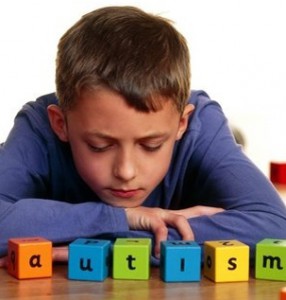Research studies have identified several factors that significantly increase child’s risk of Autism, ranging from pollution to pesticides to maternal health to pregnancy spacing.
As of 2010, one in 68 kids was diagnosed with Autism Spectrum Disorder (source: CDC)—more than double the number from one decade prior. So now, more than ever, it’s important for future parents to understand: what causes Autism and what can we do to prevent it?
The consensus is that Autism is caused by a combination of genetic and environmental factors. We can’t control the genetics piece, but there may be some things we can do about the environmental factors. Here’s are the catches: 1) the correlation found in the studies doesn’t prove causality, and 2) there are a lot of wildcards—some kids exposed to many risk factors will be fine, and vice versa. That said, we still know a lot, and there may be ways we can lower our future kids’ risks. Here are some tips for reducing your exposure to environmental factors believed to be linked to Autism:
- Minimize exposure to automotive exhaust and industrial emissions while pregnant and during the first two years of your child’s life. According to researchers at Harvard University and at University of Pittsburgh Graduate School of Public Health, exposure to higher levels of Styrene (found in car exhaust and used in the manufacture of plastics and paints) doubled the risk of Autism. Higher levels of Chromium (found in power plants used for hardening of steel) increased ASD rates by 65%. Another study of over 100,000 women found perinatal exposure to diesel, lead, manganese and cadmium (again found in air pollution) were significantly associated with ASD (up to doubling the risk). How can you reduce your exposure? Some ideas are getting an air purifier, selecting a home that’s a little ways away from the freeway, and minimizing time in areas near freeways.
- Avoid pesticides, as much as possible while pregnant. A study from University of California-Davis found that expectant mothers living near fields or farms where pesticides were applied, during pregnancy, were 2/3 more likely to have children with Autism or other developmental delays. What can you do? Be sure to rinse off your produce to remove any chemical pesticides, and consider organic produce while pregnant.
- Take your prenatal vitamins, prior to conceiving and while pregnant. A study of over 85,000 children found that taking Folic acid for 4 weeks before the start of pregnancy and at least 8 after reduced the risk of Autism by 39%.
- Avoid fever, during pregnancy. Mothers who recalled having a fever during pregnancy had double the rate of Autism among their children. Those who took medication to reduce the fever, however, did not show the increase in risk. Also, studies show Rubella exposure in early pregnancy increases risks of Autism. What can you do? Take steps to avoid coming into contact with illness and talk to your doctor about the safest way to reduce fevers, if you get one. Getting the MMR vaccine at least one month prior to your pregnancy can protect you from Rubella.
- Avoid unneeded medications, supplements and chemicals, especially while pregnant. Some medications have been linked to an increase in Autism. For example, Valproate (an anti-epileptic drug) tripled the Autism rate, according to a study of over 650,000 people, published in the Journal of the American Medical Association. Other medications like some mood stabilizers and Terbutaline (to stop premature labor) may increase risk, as well. Of course, you’ll need to weigh the benefits of any medication against the risks, so it’s a good idea to discuss your medications with your doctor.
- Maintain a healthy weight, during pregnancy. You are not alone if you just want to take off your pants and eat something, while you’re pregnant. Obesity and gestational diabetes, however, are associated with higher risk for Autism, according to a study published in the Journal Pediatrics. So you can probably enjoy some cravings with moderation, but this may be one more reason to eat a healthy diet and to get some light exercise, while pregnant.
- Avoid oxygen deprivation during birth. A study revealed that birth complications involving deprivation of Oxygen increased risk of Autism. What can you do? Consider a birth plan where you’ll have a trained medical team available who can act quickly if complications occur.
- Wait at least a year (or more) between pregnancies. A study showed that a second-born child was 3 to 4 times more likely to have Autism in cases where the mother got pregnant less than a year after having her first child, compared to waiting 3 or more years between pregnancies. The second-born child was “just” 86% more likely to have Autism if the mom waited 1-2 years compared to 3 years.
- Try to have kids while you’re younger. Studies show risks of Autism are lower in younger parents, and that both mom’s and dad’s age matter. For a lot of people, this is out of our control. But, there’s a 30% higher chance of Autism for mothers over 35 and a 40% greater chance of Autism for fathers over 40, compared to their 25-30 year old counterparts. Birth order mattered too. Firstborn children of older parents were three times as likely to have Autism, than third-or-later born of mothers aged 20-34 and fathers under 40.
Wishing you and your family good health.
If you enjoyed this article, you can automatically receive more Mama Lovejoy articles in your Facebook newsfeed by liking the Mama Lovejoy Facebook page.
